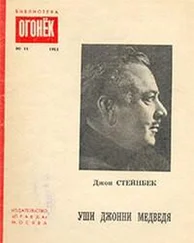Джон Стейнбек - Cup of Gold [Золотая чаша]
Здесь есть возможность читать онлайн «Джон Стейнбек - Cup of Gold [Золотая чаша]» — ознакомительный отрывок электронной книги совершенно бесплатно, а после прочтения отрывка купить полную версию. В некоторых случаях можно слушать аудио, скачать через торрент в формате fb2 и присутствует краткое содержание. Год выпуска: 1929, Жанр: Прочие приключения, на английском языке. Описание произведения, (предисловие) а так же отзывы посетителей доступны на портале библиотеки ЛибКат.
- Название:Cup of Gold [Золотая чаша]
- Автор:
- Жанр:
- Год:1929
- ISBN:нет данных
- Рейтинг книги:5 / 5. Голосов: 1
-
Избранное:Добавить в избранное
- Отзывы:
-
Ваша оценка:
- 100
- 1
- 2
- 3
- 4
- 5
Cup of Gold [Золотая чаша]: краткое содержание, описание и аннотация
Предлагаем к чтению аннотацию, описание, краткое содержание или предисловие (зависит от того, что написал сам автор книги «Cup of Gold [Золотая чаша]»). Если вы не нашли необходимую информацию о книге — напишите в комментариях, мы постараемся отыскать её.
Cup of Gold [Золотая чаша] — читать онлайн ознакомительный отрывок
Ниже представлен текст книги, разбитый по страницам. Система сохранения места последней прочитанной страницы, позволяет с удобством читать онлайн бесплатно книгу «Cup of Gold [Золотая чаша]», без необходимости каждый раз заново искать на чём Вы остановились. Поставьте закладку, и сможете в любой момент перейти на страницу, на которой закончили чтение.
Интервал:
Закладка:
Daniel once shot a sailor for an irreverence. These buccaneers prayed loudly before battle, and, if they were successful, half of them trooped off to a captured cathedral to sing the Te Deum, while the other half plundered the prize.
Captains of ships maintained the strictest discipline among their men, swiftly punishing insubordination or any other wrong-doing which might interfere with their success. There were no such riots at sea as were later tolerated by Kidd and Blackbeard and Lafitte.
But out of the whole history of the Brotherhood, one man towered. There was a Dutchman named Edward Mansveldt. In bravery and in soldiery he was preeminent, for he had taken Granada and St.
Augustine in Florida, and St. Catherine's Isle. With a great fleet of ships he had gone cruising along the coasts of Darien and Castilla de Oro, taking what he might lay his hands on. But there was a power of dream in him. Out of his mob of ragamuffin heroes he wanted to make a strong, durable nation, a new, aggressive nation in America. As more and more of the buccaneers flocked to his command, his dream solidified. He consulted the governments of England and France. They were shocked, and forbade him to consider such a thing. A race of pirates not amenable to the gibbets of the crowns? Why, they would be plundering everybody. He must not be thinking about it at all.
But still he went on planning and planning his new government. It would be started at St. Catherine's Isle. He settled a body of his men there, and then went casting about for more to join his new nation. His ship was wrecked near the city of Havana, and Spaniards strangled Edward Mansveldt on the garotte.
These were the men Henry Morgan had set about to lead. And, confidently, he saw no barrier, so only a man planned carefully and considered his chances. These stories and these men were well enough, but they fell short in the large actions. They were improvident and vain. They might help him one day.
Mansveldt was living and Bras de Fer was an old man when Henry Morgan went sailing with black Grippo in the Ganymede.
There was excitement and curiosity in Port Royal when Morgan was fitting out the Ganymede for sea.
Strange stores and unusual weapons were going into her hold. Drawn on by the quiet confidence of this young man, many sailors volunteered for his crew. The captain found five gunners of reputation in the port and signed them to go with him. When the Ganymede dropped her sails and slipped from the harbor, a crowd of idlers stood on the beach and watched her go.
They cruised to the coast of Darien looking for prey, but the sea appeared to be swept clean of Spanish craft. One morning, near theportof Cartagena, they sighted the tall red hull of a trading ship. Captain Morgan hid his men. No soul was allowed to show himself. Even the steersman worked in a tiny house, while a dummy wheel swung idly on the deck. Then down on the Spanish boat they bore, and the Spanish crew was overwhelmed. Here came a boat and no man working her. It smacked of witchcraft, or of one of those nameless tragedies of the sea the sailors talked about. Perhaps a plague had killed all the crew, and they could take and sell this ship. But when they were close, three masked guns spouted flame; they fired only at one spot, and when they had done, the rudder of the Spanish ship hung in splinters and she floundered about in no control. Then Captain Morgan, hanging aft, out of range of her broadside, poured shot into her hull until the flag fluttered down. It was the first prize of his planning.
A few days later he brought up with another ship and ran alongside to board. The Spanish crew was massed against the bulwarks to repel the attack. And immediately the air was filled with clay powder pots which landed in the thick group and exploded. The Spanish men ran screaming to the shelter of the hold to escape this flashing death.
When Henry Morgan came at last to Tortuga, four prizes followed in his wake, and he had not lost a man. It was as easy as he had known it would be. Here were four monuments to his planning. One had only to do the unexpected thing quickly. This was the secret of successful war.
Mansveldt was in Tortuga when Henry Morgan came, and his little eyes glittered as he looked at this plunder. Soon he sent for this new leader.
"You are Captain Morgan who took the four prizes in the harbor?"
"Yes, sir, I am."
"And how did you do this thing? The Spanish ships are strongly armed and wary."
"I did it, sir, with my planning. Many nights have I considered how to do these things. I work with surprise, sir, when other men use only force."
Mansveldt regarded him with admiration.
"I am fitting out an expedition to take St. Catherine's Isle," he said. "Then I am going to form a republic of buccaneers who will fight with a patriotism. Would you like to be Vice-Admiral of this expedition? I have some reputation for picking men."
The name of Mansveldt was mighty on the seas, and Henry flushed with pleasure.
"I would like it, sir," he said quickly.
The fleet sailed out, and Captain Morgan was Vice-Admiral. There was a fine assault; the ships threw in their ragged hordes and slaughter walked on the walls. The island could not withstand the fierceness of the attack, and finally the fortress fell. Then the Dutch admiral drew up his government and left Henry Morgan in command while he went out to scour the world for recruits. He and his ship were lost and never heard from again. It was said the Spaniards strangled him in Cuba.
Captain Morgan was now the paramount leader of the Spanish Main. Ships flew from the ways to join his fleets, to sail under his command and fight with him and share in his success. He went up against Puerto Bello and sacked the town. The houses were burned and all the helpless citizens were plundered.
When Captain Morgan's ships sailed off the jungle was already creeping into the ruins.
For ten years he sailed about the ocean, among the islands and along the green coasts of Tropic America, and his was the greatest name of all who had gone out for plunder. The pirates of the world came flocking to his reputation. People cheered him in Tortuga and Goaves. Numberless men volunteered for every expedition. Now all the Brotherhood waited for Captain Morgan to open a keg of liquor in the streets or to run wild through the town. He never did. Coldly he walked about, clad in a purple coat and gray silk stockings and gray shoes with bows. At his side hung a long rapier no thicker than a pencil, in a scabbard of gray silk.
At first the sailors strove to establish a comradeship with him, but he pricked them away with frigid insults. The lessons of the slaves lived on in him. He did not try to buy his popularity, and all the Free Brotherhood showered it upon him-cast their lives and their fortunes on the knees of his success.
Ten years of fighting and plundering and burning, and he was thirty. His graying hair seemed to coil more closely to his head. Henry Morgan was successful, the most luck-followed freebooter the world had known, and the men of his profession gave him that admiration he had craved. His enemies-and any man of Spain who had money was his enemy-shuddered at the mention of his name. They had placed him in their fears beside Drake and L'Ollonais.
He had gone out with Grippo in the Ganymede, assured that when his guns roared into a Spanish hull, when he stood embattled on a Spanish deck with cries and clash of iron weapons about him, there would come that flaming happiness his heart desired. These things he had experienced, and there was not even content. The nameless craving in him grew and flexed its claws against his heart. He had thought the adulation of the Brotherhood might salve the wound of his desire; that when the pirates saw the results of his planning and marveled at them, he would be pleased and flattered. And this thing happened. The men fairly fawned on him, and he found that he despised them for it and considered them fools to be taken with such simple things.
Читать дальшеИнтервал:
Закладка:
Похожие книги на «Cup of Gold [Золотая чаша]»
Представляем Вашему вниманию похожие книги на «Cup of Gold [Золотая чаша]» списком для выбора. Мы отобрали схожую по названию и смыслу литературу в надежде предоставить читателям больше вариантов отыскать новые, интересные, ещё непрочитанные произведения.
Обсуждение, отзывы о книге «Cup of Gold [Золотая чаша]» и просто собственные мнения читателей. Оставьте ваши комментарии, напишите, что Вы думаете о произведении, его смысле или главных героях. Укажите что конкретно понравилось, а что нет, и почему Вы так считаете.
![Джон Стейнбек Cup of Gold [Золотая чаша] обложка книги](/books/181372/dzhon-stejnbek-cup-of-gold-zolotaya-chasha-cover.webp)





